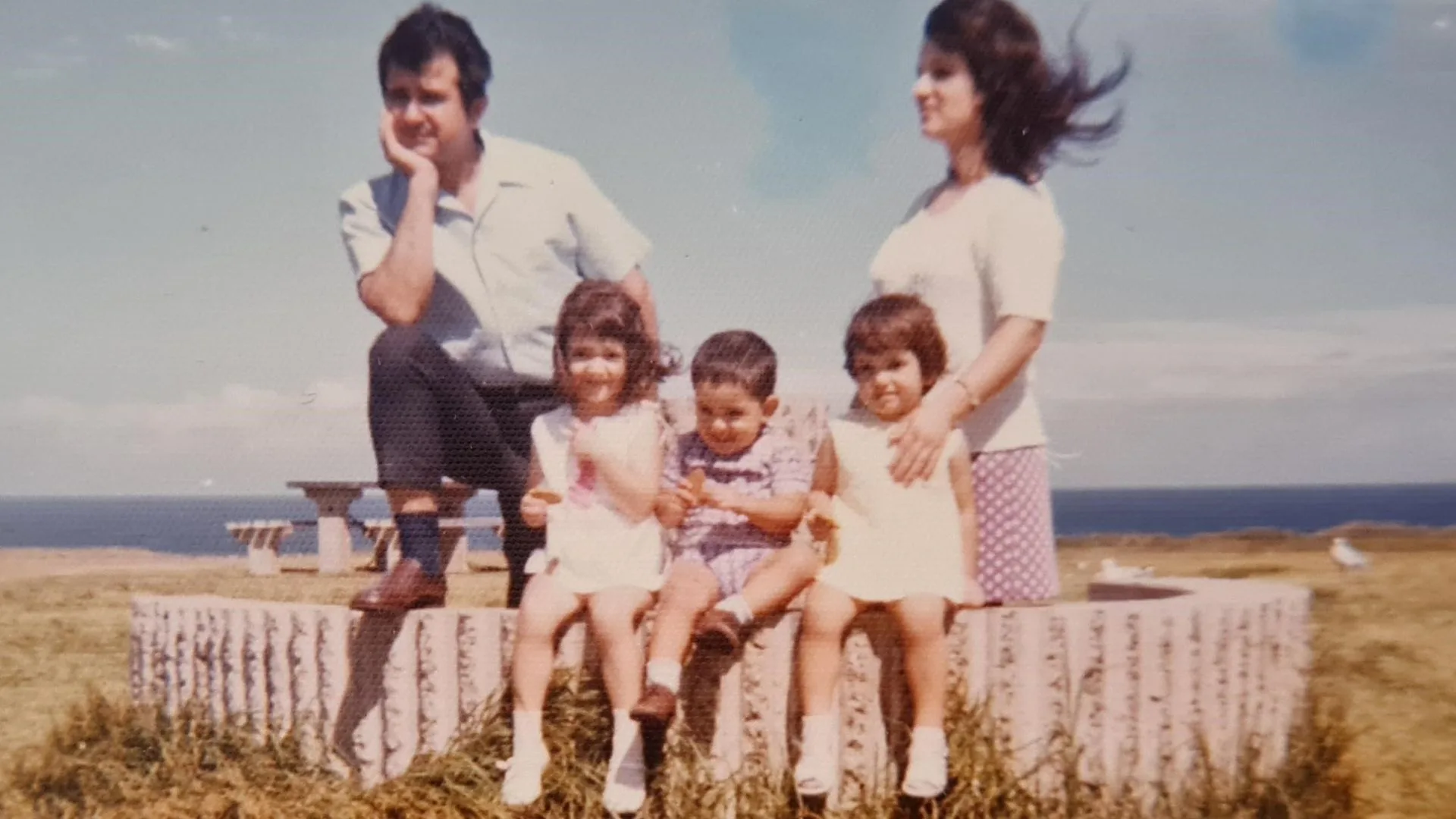By Kathy Karageorgiou
It’s Easter, the most important religious event for Greek Orthodox people all over the world. Greek families come together, in a time of traditional and sacred religious observations. This includes fasting and communion, customary Easter food preparation and church attendance – particularly on the Saturday night celebrating Christ’s Resurrection at midnight, leading into the celebrations of Easter Sunday.
The adherence by Greek Australians to these Easter traditions reinforces our sense of community, and we may take it for granted that Greek Orthodox Easter for Greek Australians is all about Greece and Australia.
There are though, Greek Australians who do not reside in neither Australia nor Greece. Their celebrations of Greek Orthodox Easter have an extra dimension, as they encompass a respective third culture. Two such Greek Australians are Nicoletta Gian, who lives in Germany, and Dimitrios Kara in Thailand.
Nicoletta Gian
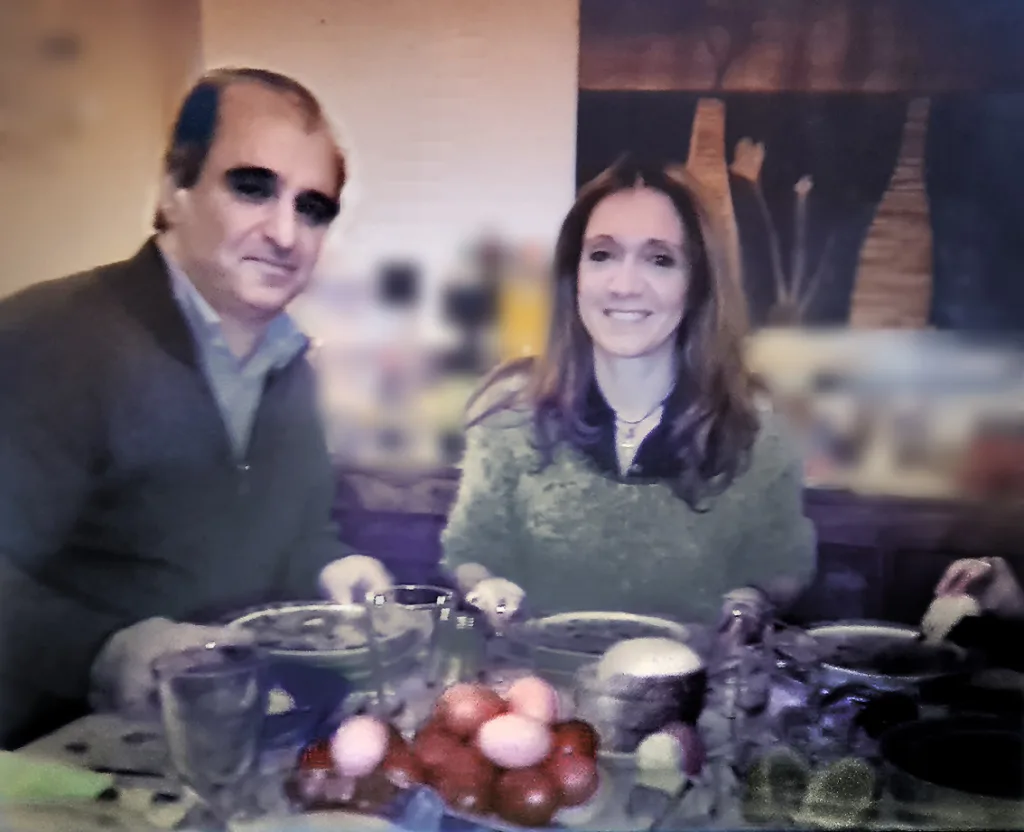
Nicoletta Gian, in her 50’s, has been living in Germany for decades with her husband and daughter. Originating from “a beautiful district of Sydney, New South Wales,” she finished primary school in the 70s, before moving to Greece with her parents and siblings. In Greece, Nicoletta studied further and worked, before moving to Germany in 1993 and marrying her Greek husband.
She tells me: “Greek families [in Germany] resemble those in Australia. Basically, I felt familiar with the system and the lifestyle in comparison to Greece, which seemed to me like a jungle system.”
As for Greek Orthodox Easter, Nicoletta explains, “the basic rituals, beliefs and traditions are just like in Greece, including fasting mainly during the Holy Week and going to [Greek Orthodox] church services. It’s really soul comforting when attending congregation… Believers, from babies, children and adults, waiting patiently to receive the Holy Communion.”
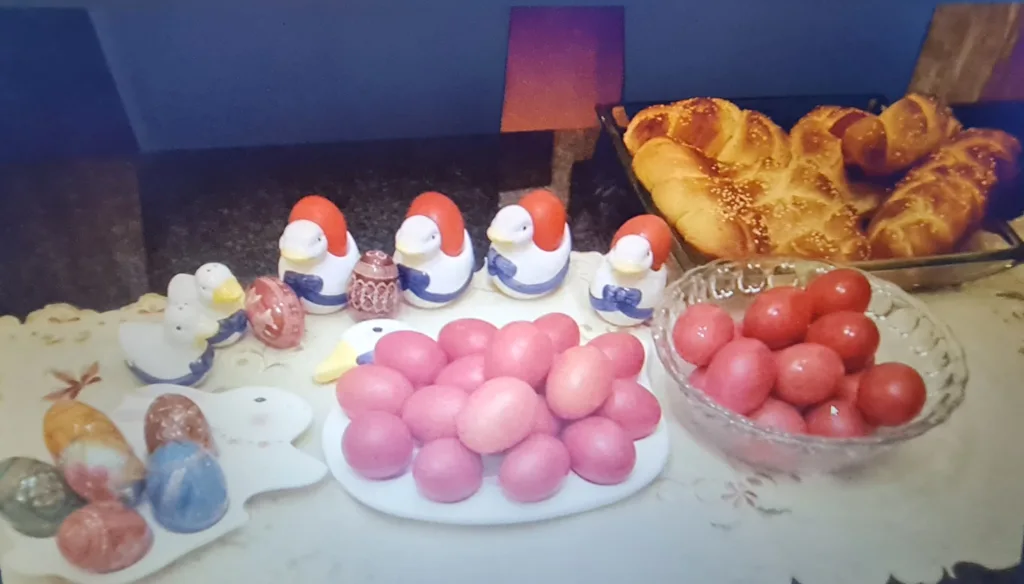
Nicoletta discusses Germany’s acceptance of the Greek Orthodox community, describing how walking the Epitaphio around the neighbourhoods includes a police escort and “the atmosphere for me is holy, sacred and very emotional.”
Nicoletta also tells me that “some Greek priests conduct the Divine Liturgy in German too” and notices, as a mum and godmother trying to pass on Greek Orthodox religion and customs to the third generation, that “when they start growing up, they seem to distance themselves from all traditions, though later in life they come back and ask for advice and instructions on how to bake buns, dye eggs and follow Christianity again.”
Nicoletta tells me she is handy in arts and crafts, making candles for her six godchildren, while still getting them “the traditional shoes and clothes with the special Easter candle.”
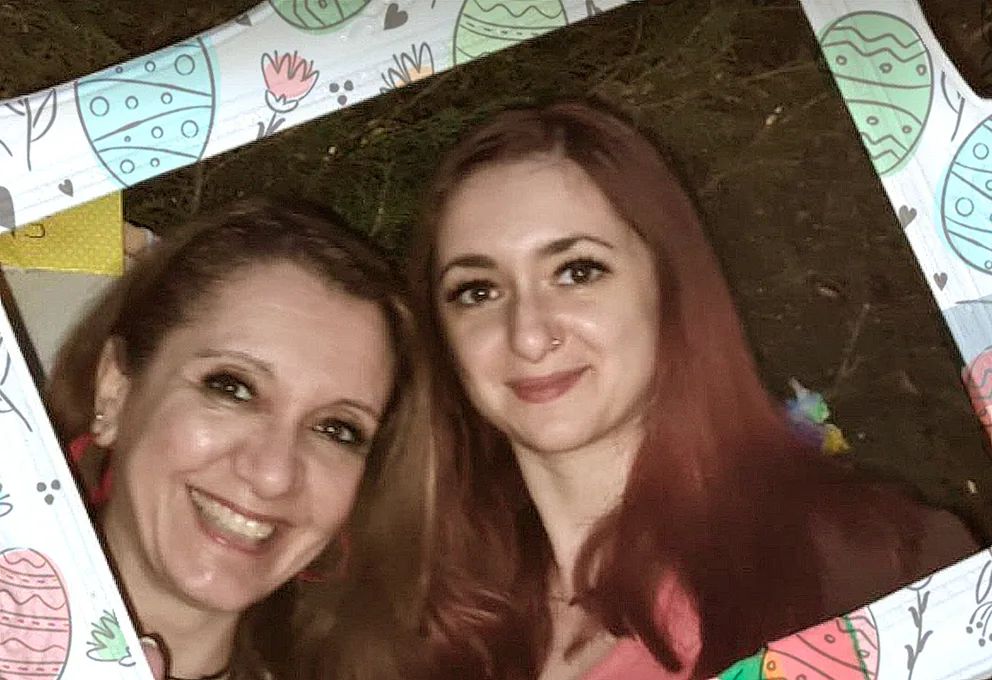
Expanding on her motivation for the upholding of Greek customs, she says: “As a Greek child, I had the opportunity to live a multicultural, traditional, ethnic and spiritual life, first in Australia and then in Greece.
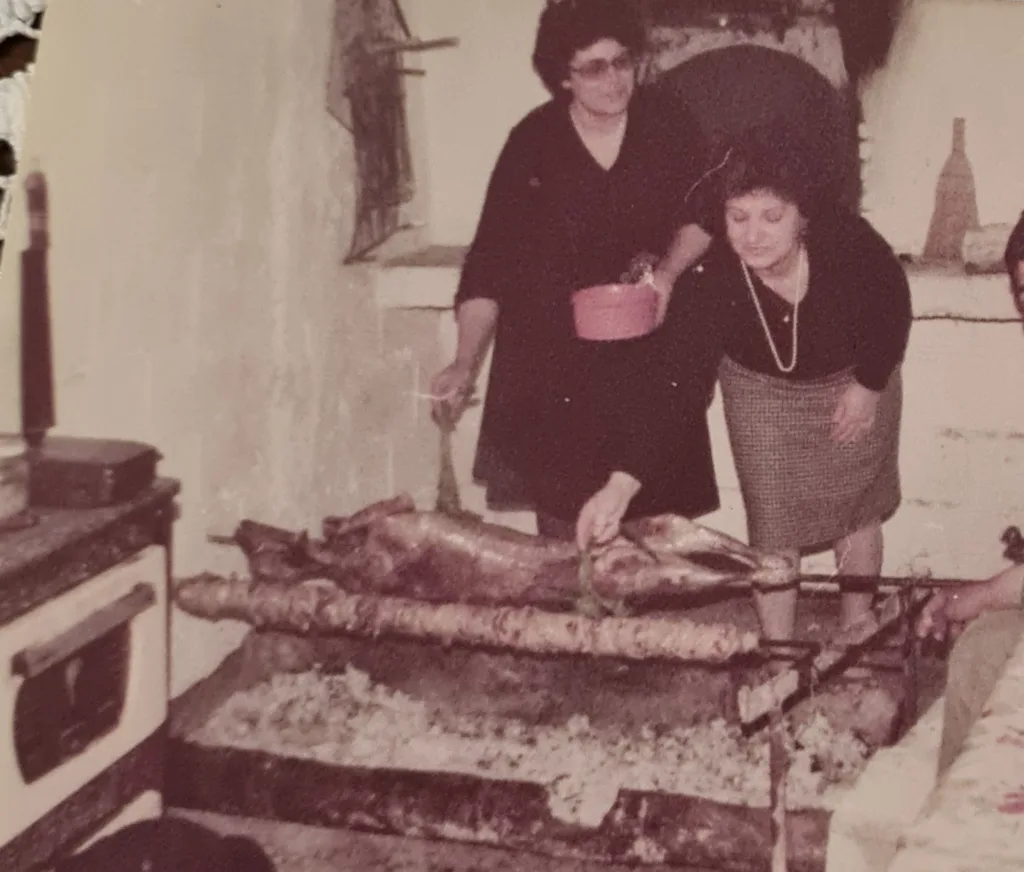
“Determination led me to live and learn from the immigrants in Germany as well… three different cultures, but one religion unites us all over the world through the language of love.”
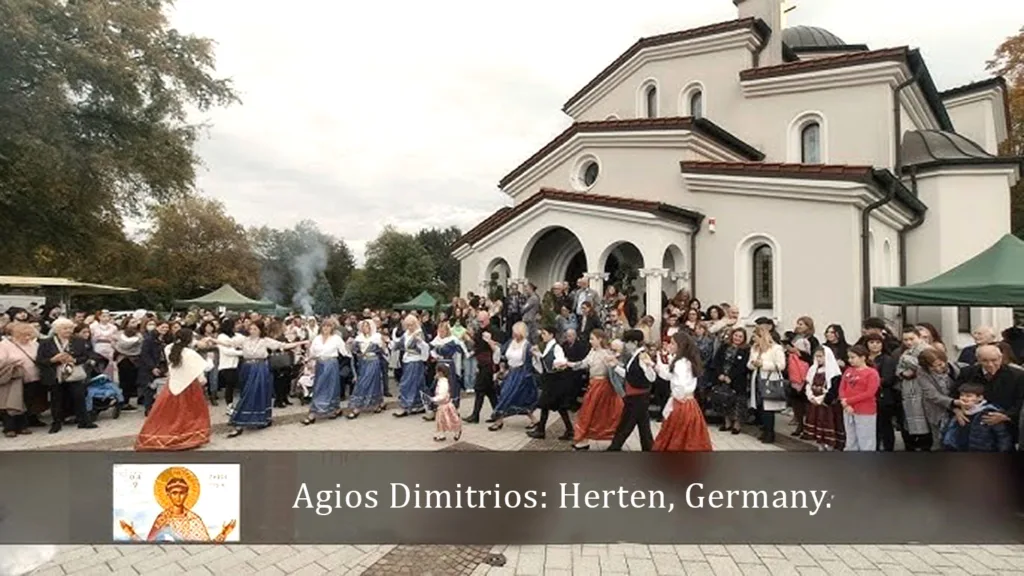
Dimitrios Kara
Dimitrios Kara, aged 50, has been living in Thailand for seven years now. He enthusiastically explains, “I fell in love with the land of smiles as they call it, from the first time I visited in 1994. I feel safer here than in Melbourne, and freer than I’ve ever felt before. I decided to leave Australia for a new beginning.”
Dimitrios adds that he still loves Australia, and is always thankful for the life it provided him and his family when he was growing up, claiming, “but I had come to a stage where I wanted something different. I didn’t want the rat race in my life.”
Alluding to his “beautiful wife” and three-year-old son Ares, he continues:
“I have made a family here, found work and have many friends. I feel I’m part Thai now and feel at home, but times like Greek Orthodox Easter for example, it’s hard celebrating these occasions away from family in a foreign land.”
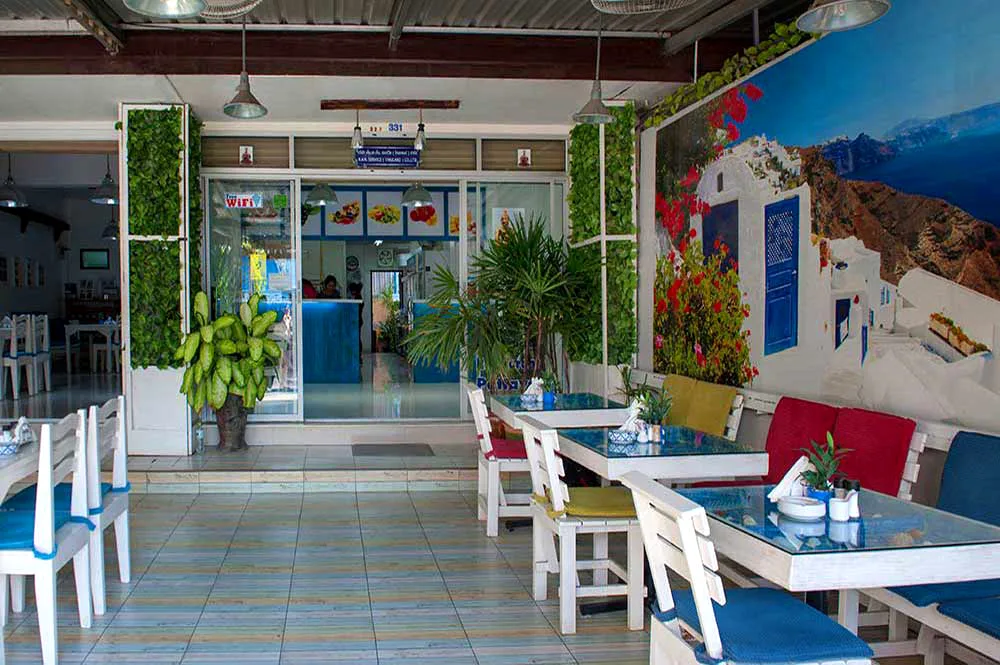
Dimitrios explains that in the city of Pattaya where he lives, amongst a population of about 120,000, there are around ten Greeks, “but we stick together.” He then goes on to talk about his gratitude and respect for the owner of a Greek taverna there – El Grego, owned by a Greek couple from Thessaloniki who “fell in love with Thailand many years ago and have lived here ever since.”
He enthusiastically tells how on Greek Orthodox Easter, Ms Aggeliki the owner, puts on an Easter feast.
“Traditional Greek food and koulouria, making sure she gives us enough to last the whole year! My son’s godfather Yianni, who’s Greek and lives in Thailand, also comes,” Dimitrios says.
“We have a great day, and are thankful to her for not feeling alone. And of course we keep up the tradition of smashing the red eggs. It’s fun seeing the puzzled look of the Thai people when they see this, but they are respectful of our traditions and love koulouria!
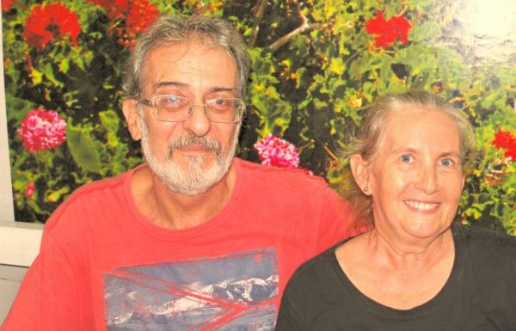
Although Pattaya doesn’t have a Greek Orthodox Church, Dimitrios tells me that he has once been to the Russian Orthodox Church there for Easter, but claims, “it didn’t feel the same for me.”
“After our Easter lunch, a group of us Greeks will hit a club in the evening and close our celebrations with a bottle of Metaxa or ouzo.”
Stopping suddenly, and tearing up, he says, “I want people reading this to appreciate who we Greeks are and not take our family gatherings for granted.

“I don’t get a chance to enjoy Easter like I remember, it’s never the same, never. Growing up in Australia, the best times and best memories I had were celebrating these times with family. I felt joy, excitement; going to church in the morning… then looking forward to friends and family celebrating together. It’s special, it was really special. I miss it, and I really miss my family.
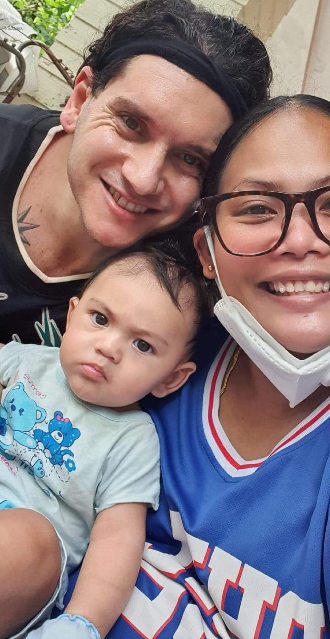

“I hope to move to Greece soon with my new family. My roots are Greek, my blood is Greek and my heart lies in Greece.”
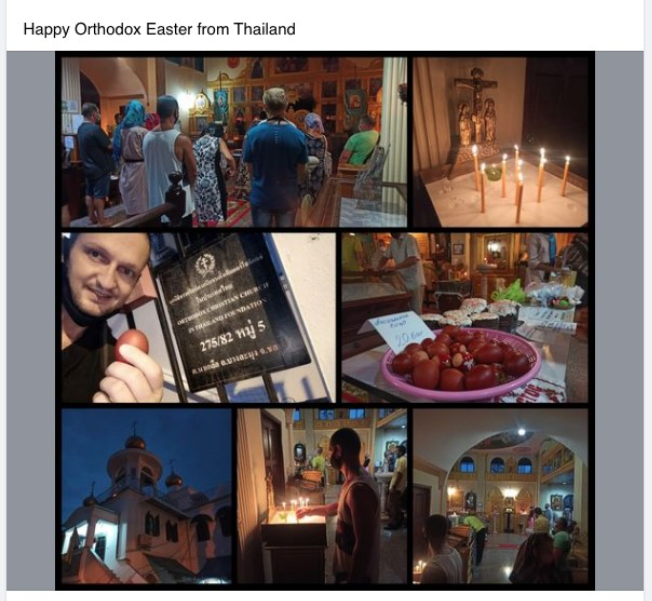
Greek Orthodox Easter seems to enhance the respect and love that we, Greek Australians share towards our Greek roots. This includes the importance we place on family, and on our community’s spiritual core.
